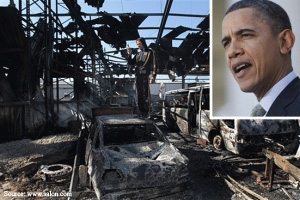The recent earthquake and the resulting tsunami in Japan have killed thousands, displaced hundreds of thousands, and left a nation of 100 million and the whole world—in tears. The tragedy is nothing to make light of, but in order to perceive the proverbial rainbow after the storm, we would need to move forward and see what we could learn from the disaster.
Not surprisingly, Japanese stocks fell after the catastrophe. However, it would seem that certain industries ought to thrive with earthquakes in Japan, Haiti or anywhere else. In fact, the data supports the theory that some industries boom after an earthquake hits.
One stock analyst pinpoints certain companies that develop storm and tsunami warning systems as potentially good buys. Also, businesses that deal with earthquakes, whether offering warning devices or building fortifications against such are expected to do well. In fact, the construction industry as a whole seems to be one that bounces back quickly after an earthquake. Less than a month after the incident, construction seems to be on the rise. It seems logical, as after the dust settles, people start to rebuild. However, the real winners are businesses that manufacture metal products. The industry has been doing consistently well after the calamity, registering the highest gains in the Tokyo Stock Exchange as of April 4.
Furthermore, despite the initial drop, insurance companies, even in the US, are starting to get better, as people begin looking for ways to survive financially after a disaster like in Japan. Another trade that seems to benefit from an earthquake is pharmaceutics, considering the resulting injuries. Numbers from both the TSE and Standard & Poor’s substantiate these claims.
Finally, while real estate is sure to suffer after an earthquake (would you buy a house in an area just devastated by an earthquake?), Haiti, struck by a 7.0 last year, showed how hotels, at least those that did not crumble, could benefit from such. The Haiti earthquake, one writer says, “shrank the market and jacked up occupancy rates.”
After an earthquake, not all industries are crushed to the ground. Not to be opportunistic, but some even tend to do better.

